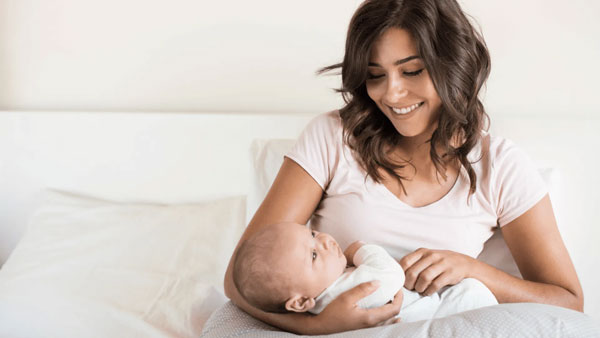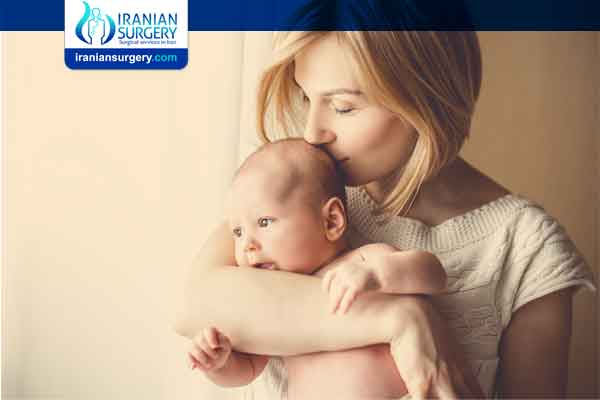Will My Baby Look Like Me if I Use a Donor Egg?
Will a donor egg have my DNA?
What are the chances of getting pregnant with a donor egg?
Will using a donor egg affect the way I bond with my baby?
We know that genes determine inheritance of appearance, but the specifics are complex. Physical traits are inherited for everything from eye and hair color to blood type and Rh factor. In addition to these physical traits, there are other inherited characteristics, like personality, IQ and talents. All three people involved (egg donor, egg recipient and egg recipient’s partner) affect the growing fetus in different and significant ways, and the odds that a baby will look like any of them varies.
An egg recipient is not just an “incubator” for the baby. She is the mother and she provides everything the fetus needs to grow and develop.

Each baby’s physical composition is determined by genetics. When couples use a donor egg, the genes of the egg donor and egg recipient’s partner combine and establish some undeniable traits. Common examples of traits that are passed through the generations are: ear lobe attachment, tongue rolling, freckles, dimples, handedness and red/green color blindness. The egg recipient will have no effect on these characteristics, as they are hard wired in genetic code.
However, current scientific information suggests that genetic inheritance of appearance goes well beyond the simple, outdated notion that dominant and recessive genes can only produce finite variations. The combinations are literally endless.
Read more about : Ivf process timeline

Will my baby look like me if I use a donor egg?
Women who are thinking about using donor eggs want to know if the baby will resemble them. Because a donor egg won’t share any of its genes with its intended mother, there’s a chance the baby will not resemble its mother. However, if her partner’s sperm was used, the baby may look like its father because they share the same genetics.
That being said, it’s important for couples to understand that nothing is definitive — giving birth to a child naturally doesn’t ensure they look like you and using a donor egg doesn’t automatically mean your child won’t resemble you at all. Particularly if you and the donor are the same ethnicity, there’s a strong chance the baby will still resemble you.
We understand that parents naturally have a desire to raise a child that looks like them, however genes don’t make a family. Even if your child doesn’t look like you, that doesn’t make them any less your baby.
Physically, your child may not resemble you, but they may still adopt your mannerisms, facial expressions, and humor. When it comes to their interests, talents, and traits, genes are not the sole deciding factor. Environment and exposure also play a major role during development, giving you more similarities in the future than just hair and eye color. Whether you’re adopting, using a surrogate, using a donor egg, or giving birth naturally, most every parent worries about bonding with their new child.
Read more about : Does icsi increase chance of twins?
Read more about : How many days after period is frozen embryo transfer?
Will a donor egg have my DNA?
Most patients considering using donor eggs are concerned that they will not share a genetic heritage with their child. While it’s true that when you use donor eggs in IVF, half of the baby’s DNA will come from the donor, the answer is actually a little more complex than that.
Researchers suggests that women who become pregnant with a donor egg actually do pass on some genetic material to the baby throughout the pregnancy. The mother’s endometrial fluid, which surrounds a developing baby throughout gestation, contains genetic material called “microRNAs.”
These molecules are absorbed by the embryo, and may influence the expression of a baby’s DNA. Simply put, microRNAs can determine which of the developing child’s genes are turned off or on, deciding which traits will be expressed. Research continues to explore exactly how this works and the extent to which a gestating mother’s DNA affects the baby she carries, but this early evidence suggests that your biological and genetic connection to a donor egg baby may be more significant than was previously thought possible.
Read more about: Does assisted hatching help implantation?
What are the chances of getting pregnant with a donor egg?
Because most donors are young, their eggs will be healthy, making the rate of successful pregnancies with donor eggs very high there's around a 50% success rate per cycle. The cause for IVF failure can also occur in the last stage of process, during the implantation. The egg and sperm may both be healthy, but polyps, cysts, poor blood flow, and a thin uterine lining may lead to a failed implantation of the embryo.
Read more about: How long does donor egg IVF take time?
Will using a donor egg affect the way I bond with my baby?
One of the most common anxiety around using donor eggs is that the baby might not feel like it is really yours. This fear does not take into account the profound influence of carrying a baby inside your body for nine months. The experience of pregnancy is uniquely intimate, and science is discovering just how much bonding takes place within the womb.
Studies from the 80s first showed that babies learned their mothers’ voices before birth, and showed a clear preference for them after birth, and research since then has only confirmed what we learned then. Unborn babies have been observed reacting selectively to their mother’s voice and touch as early as the second trimester, according to research published in 2015, which is only one recent example of the science behind prenatal attachment.
Research is clear on this point, and the anecdotal evidence backs it up. As soon as a donor-egg embryo implants in your uterus, the bonding process has begun, and this bond will continue to grow throughout the experience of carrying and giving birth to your baby.
Read more about: How many days after period is frozen embryo transfer?


